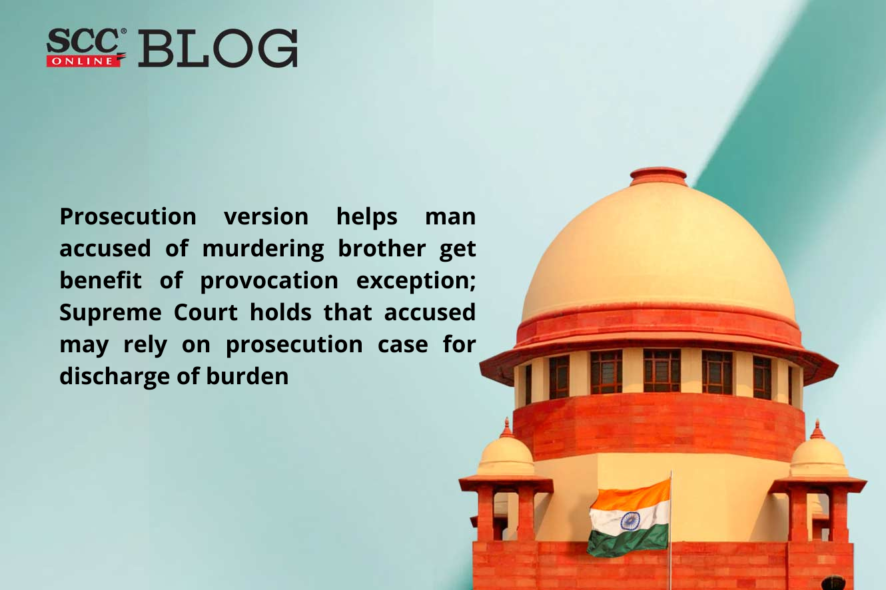Supreme Court: In an interesting case, where a man was convicted for murder of his younger brother, the bench of Sanjiv Khanna* and Bela M. Trivedi, JJ has converted the conviction from Section 302 to Part I of Section 304 of the IPC after holding that to discharge the burden the accused may rely upon the case of the prosecution and the evidence adduced by the prosecution in the court.
In the case at hand, the appellant was convicted for killing his younger brother. He had then himself went to the police station and confessed the crime, albeit, the confession is inadmissible as proof of confession is prohibited under Section 25 of the Evidence Act, 1872. The weapon i.e. the pick-axe and the blood stained shirt of the appellant were recovered based on the appellant’s disclosure.
According to the testimonies of various family members and the neighbours, the deceased was an alcoholic who barely interacted with the family, and used to torment, abuse and threaten the appellant. This fact was relied upon by the prosecution to establish the motive. On the night of the occurrence, the deceased had consumed alcohol and had told the appellant to leave the house and if not, he would kill the appellant. The appellant had also tried to commit suicide.
In is in the light of these facts, that the Supreme Court explained that,
“The prosecution must prove the guilt of the accused, that is, it must establish all ingredients of the offence with which the accused is charged, but this burden should not be mixed with the burden on the accused of proving that the case falls within an exception. However, to discharge this burden the accused may rely upon the case of the prosecution and the evidence adduced by the prosecution in the court.”
Hence, applying the prosecution version in the appellant’s defence, it was noticed that there was sudden loss of self-control on account of a ‘slow burn’ reaction followed by the final and immediate provocation. There was temporary loss of self-control as the appellant had tried to kill himself by holding live electrical wires. Therefore, it was held that the acts of provocation on the basis of which the appellant caused the death of his brother, were both sudden and grave and that there was loss of self-control.
Applying the provocation exception, the Court converted the conviction of the appellant from Section 302 to Part I of Section 304 of the IPC. Further, considering that the appellant has already suffered incarceration for over 10 years, as he has been in custody since 27th September, 2011, the Court modified the sentence of imprisonment to the period already undergone. In addition, the appellant would have to pay a fine of Rs. 1,000/- and in default, will undergo simple imprisonment for a period of six months. On payment of fine or default imprisonment, the appellant will be released forthwith, if not required to be detained for any other case
[Dauvaram Nirmalkar v. State of Chhattissgarh, 2022 SCC OnLine SC 955, decided on 02.08.2022]






